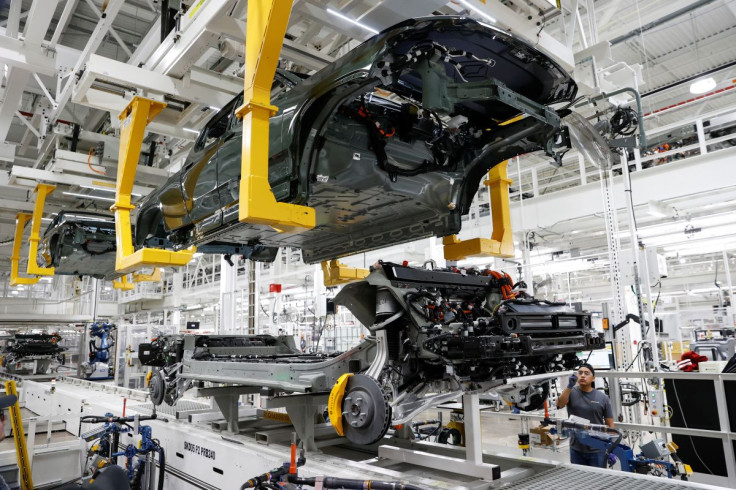Democrats' Inflation Reduction Act: Would Current EV Purchases Qualify For A Tax Credit?
The Inflation Reduction Act, which recently passed the Senate, includes a tax credit for buyers of certain clean energy products, including electric vehicles.
Many question how the EV market will benefit from the bill, which is expected to pass the House and will be signed by President Biden. While the Inflation Reduction Act expands EV purchase subsidies, there are strict sourcing requirements for battery materials.
Consumers stand to get a tax credit of up to $7,500. Axios this week produced a chart projecting future EV sales that showed tax credits would increase incentives to purchase.
Still, the tax credit only applies to EVs that have an MSRP of under $55,000 for cars and $80,000 for SUVs, trucks and vans. Buyers only receive the credit if they make under $150,000 a year in salary or $300,000 a year jointly.
For two-year-old EVs priced at $25,000 or less, the credit is $4,000. It applies to anyone making close to $75,000.
There is another caveat. Under the new law, any tax credit applies to only vehicles meeting certain battery requirements.
Essentially, the bill incentivizes EV manufacturers to source batteries and materials from North America rather than China. Under the law, EV manufacturers must have 40% of their battery materials sourced from North America by 2024. That requirement will reach 100% by 2029.
For many automakers, getting to a point where all battery materials are sourced in North America would be extremely difficult. The U.S. is not a dominant force in the EV battery market, as China maintains 76% of the lithium-ion battery market, while the U.S. only controls 8%.
"It's not going to happen overnight. We need to work with our partners and public officials to figure out what's going to work best," John Bozzella, CEO of The Alliance for Automotive Innovation, told CNBC.
The Associated Press noted there are 72 electric, hydrogen or plug-in hybrid models sold in the U.S. Seventy percent of them are currently ineligible for the tax credit.
Some in the industry are hopeful that North American-sourced batteries will eventually help consumers.
"If you look at what [automakers] are promising, if they execute on their commitment, I see no reason why the domestically produced products should not benefit, and the consumer should not benefit," Martin French, managing director at Berylls Strategy Advisors USA, told CNBC.
The White House set a target of zero-emissions models reaching 50% of U.S. car and light truck sales by 2030.
In the first half of 2021, fully electric and plug-in hybrids together were 3.3% of U.S. car sales. https://t.co/jxxz3iEEyr pic.twitter.com/YVbNbgThqc
— Axios (@axios) August 8, 2021

© Copyright IBTimes 2024. All rights reserved.






















